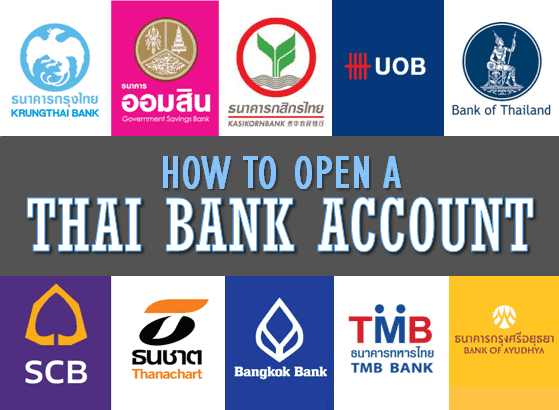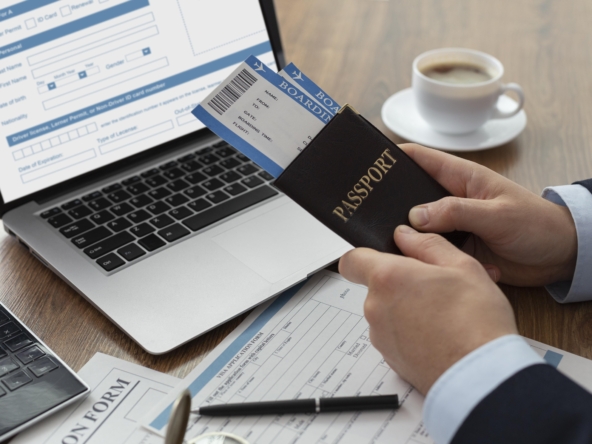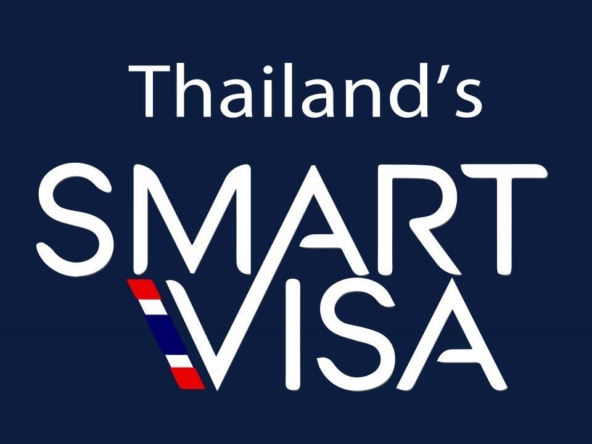If you’re a foreigner living or spending an extended period in Thailand, opening a Thai bank account can make your financial life far easier. Local accounts allow you to withdraw cash at local ATMs, avoid high overseas transaction‑fees, pay bills and utilities easily, and generally integrate into everyday life in Thailand. However, the process for foreigners is more involved than simply walking in with a passport. Banks must comply with strict regulations – and recent changes have tightened eligibility for foreigners. Bangkok Post+3Siam Legal International+3ThaiEmbassy.com+3
This article explains: (1) what kinds of visas allow you to open a Thai bank account, (2) the documentation typically required, (3) recent changes and things to watch out for, and (4) practical tips.
1. Visa & eligibility: what kind of visa do you need?
Long‑term vs tourist/short‑stay visas
A key change in recent years is that many Thai banks no longer allow foreigners on tourist visas or short‑stay visas (e.g., visa‑exemption entries, 30/60 day stamps) to open standard deposit accounts. According to a 2025 guide:
“Tourist visa including DTV (Visa‑Exempt / TR) … Not eligible” for opening a bank account. Thai Nexus+2ThaiEmbassy.com+2
One major Thai bank – Bangkok Bank – explicitly announced that new deposit accounts for foreign customers now require long‑term visas, marriage to Thai nationals or Thai property ownership, and that tourists are no longer eligible. Bangkok Post
Visas that generally work
Banks typically accept applicants holding one of the following visa types:
Non‑Immigrant B (work/business visa)
Non‑Immigrant O (for family, marriage)
Non‑Immigrant ED (student visa) – sometimes accepted
Retirement visa (Non‑Immigrant O‑A or O‑X)
Long‑Term Resident (LTR) visa or special investment/residency visa
For example, the 2025 guide states that with a work, marriage or retirement visa you are “often accepted.” Thai Nexus+1
What about tourist visas?
Banks are increasingly refusing account openings for tourists or visa‑exempt entries. Unless you have a long‑stay permission, you may be declined. Thai Nexus+1
Therefore, if you are on a short‑stay tourist visa and you hope to open a bank account, you’ll need to check carefully with the bank branch as chances of success are low.
2. Documentation: What you’ll need to bring
While exact requirements vary by bank and branch, the core set of documents you will typically need include:
a) Passport
A valid foreign passport is a must. The bank will copy the identification page plus any Thai visa stamps/endorsements. Wise+1
b) Visa/Permit Documents
You will need to show your Thai visa page or stamp (showing the type and validity) and sometimes the permission to stay stamp. For example, banks may ask for your Non‑Immigrant visa page. ธนาคารกสิกรไทย
c) Work permit / evidence of purpose (if applicable)
If you’re on a work visa (Non‑Immigrant B) then a work permit or letter of employment may be required. Some banks also ask for a letter showing your purpose of stay (e.g., student letter for Non‑Immigrant ED). Wise+1
d) Proof of Thai address
Many banks require proof of address in Thailand — e.g., a rental agreement, utility bill, or certificate of residence from immigration. The address must match the one you give to the bank. dsgpay+1
e) Home country ID / driver’s license
Some banks ask for a secondary ID from your home country (e.g., national ID card, driver’s license) to further verify identity. Siam Legal International
f) Initial deposit
You’ll need to make the minimum deposit amount specified by the bank. For example, for a foreign‑currency deposit account with Bangkok Bank, the minimum first deposit is USD 1,000 (or equivalent) for FCD accounts. bangkokbank.com
g) Thai phone number / local contact
Some banks require you to have a Thai mobile phone number and local contact information for activation of mobile banking. Thai Nexus
h) Additional bank‑specific requirements
Depending on the bank and branch you may be asked for: a letter of recommendation, a letter from your embassy or home bank, a certificate of enrolment (for students), or property ownership documents. dsgpay+1
3. Recent changes & regulatory risks to be aware of
Stricter regulations on foreigners
As noted, banks in Thailand have tightened procedures for foreigners to open accounts due to concerns about fraud, money‑laundering and “mule accounts.” Bangkok Post+1 This means banks may now demand stronger documentation and may reject accounts that they consider high‑risk.
Branch choice matters
Even within a bank, different branches may interpret policies differently. One branch may accept foreigners under certain visa types, while another may refuse. A Thai speaker accompaniment may help. Thai Nexus+1
Tourist accounts becoming difficult
If you’re still on a tourist visa or visa‑exempt entry you may find yourself blocked outright. As the 2025 guide puts it: “Tourist visa … Not eligible”. Thai Nexus
Foreign currency deposit accounts (FCD)
These accounts allow deposits in foreign currencies. For example, with Bangkok Bank’s FCD account you can open it under tourist visa still, but note that local baht deposit and usage conditions differ. bangkokbank.com
Know‑Your‑Customer (KYC) checks
Banks will model your risk profile and may require further verification if your documents appear incomplete or high risk. This may result in delays or rejection. Bangkok Post
4. Step‑By‑Step: Opening the Article
Here’s a typical step‑by‑step process for opening a Thai bank account as a foreigner:
Choose the bank
Popular banks include: Bangkok Bank, Kasikorn Bank (KBank), Siam Commercial Bank (SCB), etc. Large branches in metropolitan areas handle foreigners more often. Wise+1Gather documents
Prepare your passport, visa stamp/permit, proof of address, home country ID, Thai phone number, work permit or student letter if required.Visit in person
Most banks require you to be physically present to open the account. Online openings for foreigners are still rare. Wise+1Submit application at the branch
Meet with bank staff, fill out the account‑opening form, submit documents and make the minimum deposit.Activate services
Once approved, you’ll receive a bank book/passbook, possibly a debit card, mobile banking activation. Ask about fees, online banking, debit/credit card access, and foreign currency deposit options.Understand ongoing requirements
Be aware of minimum deposit balances, fees if balance drops below minimum, exchange rate rules for FCD accounts, withdrawal limits, etc. (See example: FCD account USD 250 minimum average). bangkokbank.com
5. Tips & Considerations for Your Clients
Check inside branch: Different branches of the same bank have different levels of willingness to open accounts for foreigners. Choose a branch known to handle expats.
Have long‑term visa: If you’re on a tourist visa and intend to open an account, you may hit a brick wall. Advise clients to secure work, retirement, marriage or student visa before attempting the account.
Language/assistance: Encourage clients to bring someone who speaks Thai or to use a bank with English‑speaking staff. Some bank staff may only deal with local customers and may be less familiar with foreigner cases. ThaiEmbassy.com
Explain purpose clearly: Banks will want to know your reason for the account, your source of income, and your Thai address – being clear and transparent supports approval.
Ask about hidden fees: Different banks have different fee structures. For example, foreign currency deposit accounts have their own fees and minimums. bangkokbank.com
Be realistic about what you can get: Some account types (e.g., current account with cheque book, credit card) may require additional conditions like Thai residency, work permit or long‑stay visa.
Update bank if your status changes: If you change visa type, residence address or funding source, inform the bank to maintain compliance.
6. Conclusion
Opening a bank account in Thailand as a foreigner is absolutely possible — and beneficial — but it’s no longer as simple as showing up with a passport. The key factor is your visa/residency status: long‑term visas such as work, retirement, marriage or student visas give you a much better chance of success than tourist visas.
Banks require a set of standard documents (passport, visa, proof of address, etc.), and many now perform more stringent checks to comply with anti‑fraud and anti‑money‑laundering regulations. Branch choice and preparation matter. For your clients planning to live in Thailand or run a business there, guiding them to secure the correct visa and gather the right documentation will make the process smoother.




